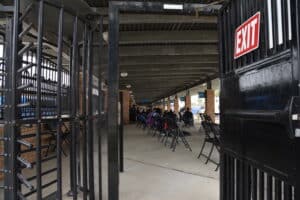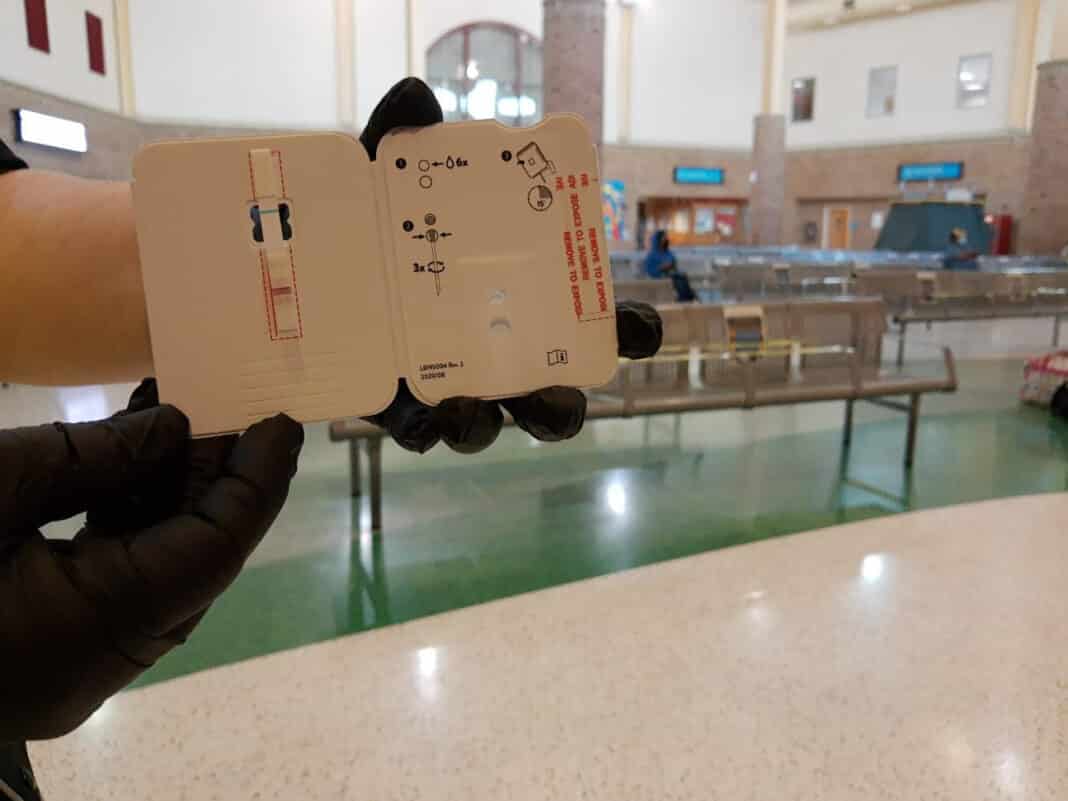Migrants released from federal custody into the Rio Grande Valley are receiving COVID-19 tests, though no positive results have yet to be reported.

(Valerie Gonzalez | [email protected])
The Texas Division of Emergency Management sent 6,000 Abbott BinaxNow COVID-19 Ag Cards to McAllen and another 10,000 to the city of Brownsville.
U.S. Border Patrol began releasing migrant families on Jan. 27 after facing capacity issues due to COVID-19 protocols, changes in Mexican law, and limited U.S. holding capacities after their main processing center in McAllen was closed for a year-long renovations project.
Testing was set to start over the weekend in Brownsville, but it officially began on Monday, according to the city’s public information officer, Felipe Romero.
Migrants arriving at Brownsville’s bus depot are seated in an outdoor area away from the general public where they receive guidance on bus ticket or airfare purchases and are allowed to use the phone to coordinate their trips with relatives in the U.S.
City employees facilitate the process, ensure adherence to CDC guidelines, and administer the COVID-19 test.
A positive result triggers a different protocol.
“They are made aware of their positive COVID test and we give them the information of the nonprofit organizations in the area that they can reach out to provide assistance for staying at a hotel. Or, they are also given the resources to contact their family members so they can assist them for staying at a hotel,” Romero said.
Ozanam Center, Good Neighbor Settlement House, Team Brownsville and Catholic Charities of the Rio Grande Valley are offering aid to those who may test positive and those who need to stay overnight.
Catholic Charities of the Rio Grande Valley has arranged to use two hotels — one in Cameron County and another in Hidalgo County — where they can send families who test positive to quarantine, according to Executive Director Sister Norma Pimentel.
In McAllen, a similar process is in place.
Migrants are dropped off at the respite center in the downtown area across the street from the bus station. COVID-19 tests are administered by staff.
“We transport them to a hotel that we have as a filter to keep people who have tested positive, and keep them there until they test negative,” Pimentel said.
So far, Pimentel and Romero said no one has tested positive.
Some migrants leaving Guatemala pay for private lab COVID-19 tests, which can run about $50 USD, according to a Guatemalan father who showed his child’s negative test results to The Monitor on Saturday.
Other migrants said they were tested by U.S. immigration officers. U.S. Border Patrol’s official policy is to test only those who are symptomatic.
Critics have cited concern over the release of migrant families during the pandemic.
“I agree with people who may be concerned about that,” Pimentel said. “We must make sure that we’re safe here in the United States, and that we take the proper procedures to be safe. We want to make sure that the people who enter the country do not have the virus.”
Testing will continue as more families are released.
“We’ve been told to reach out back to the Texas Division of Emergency Management if we need any more rapid tests,” Romero said.
He said the tests are exclusively to be used for the influx of migrants released into the cities.




